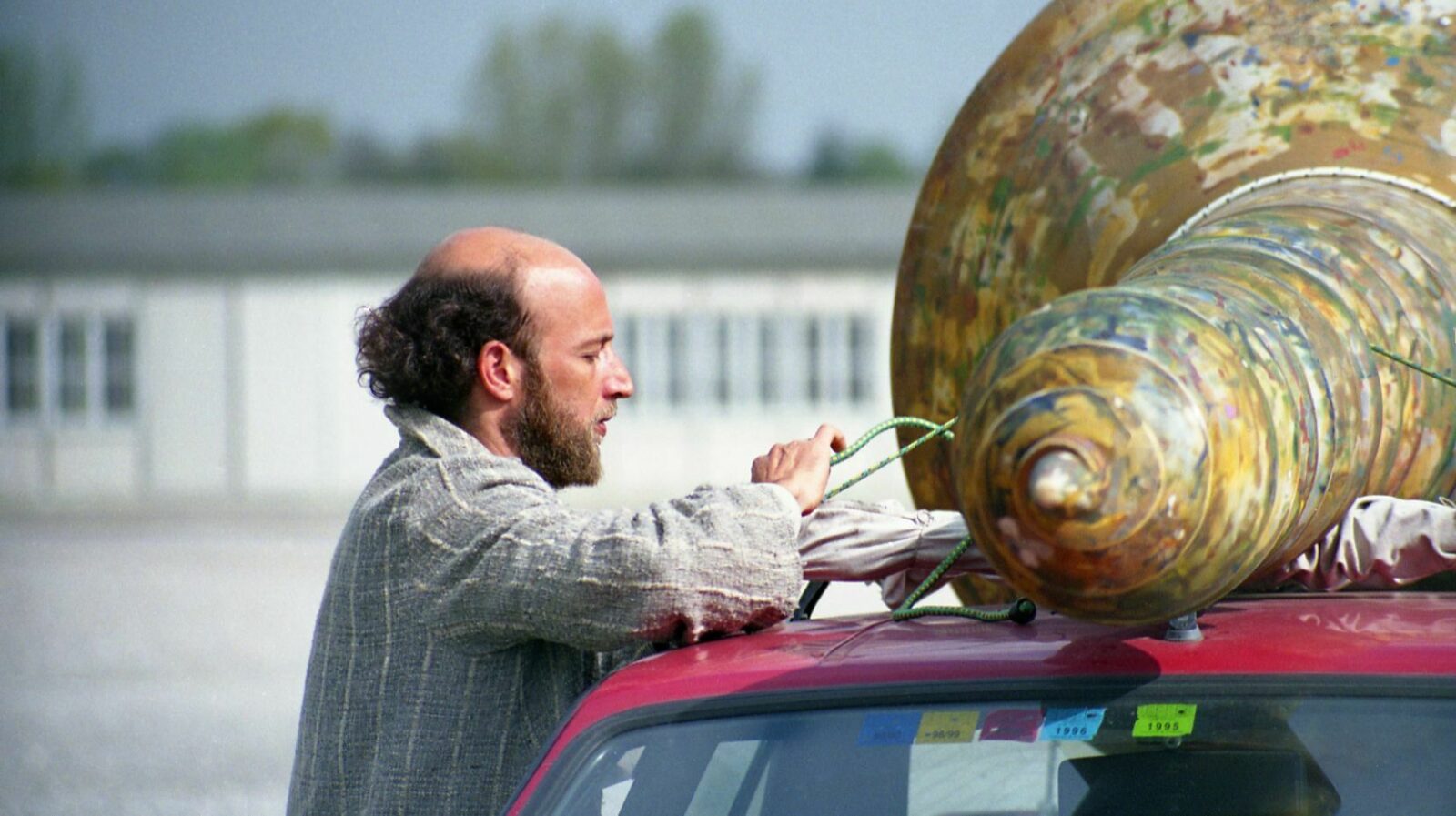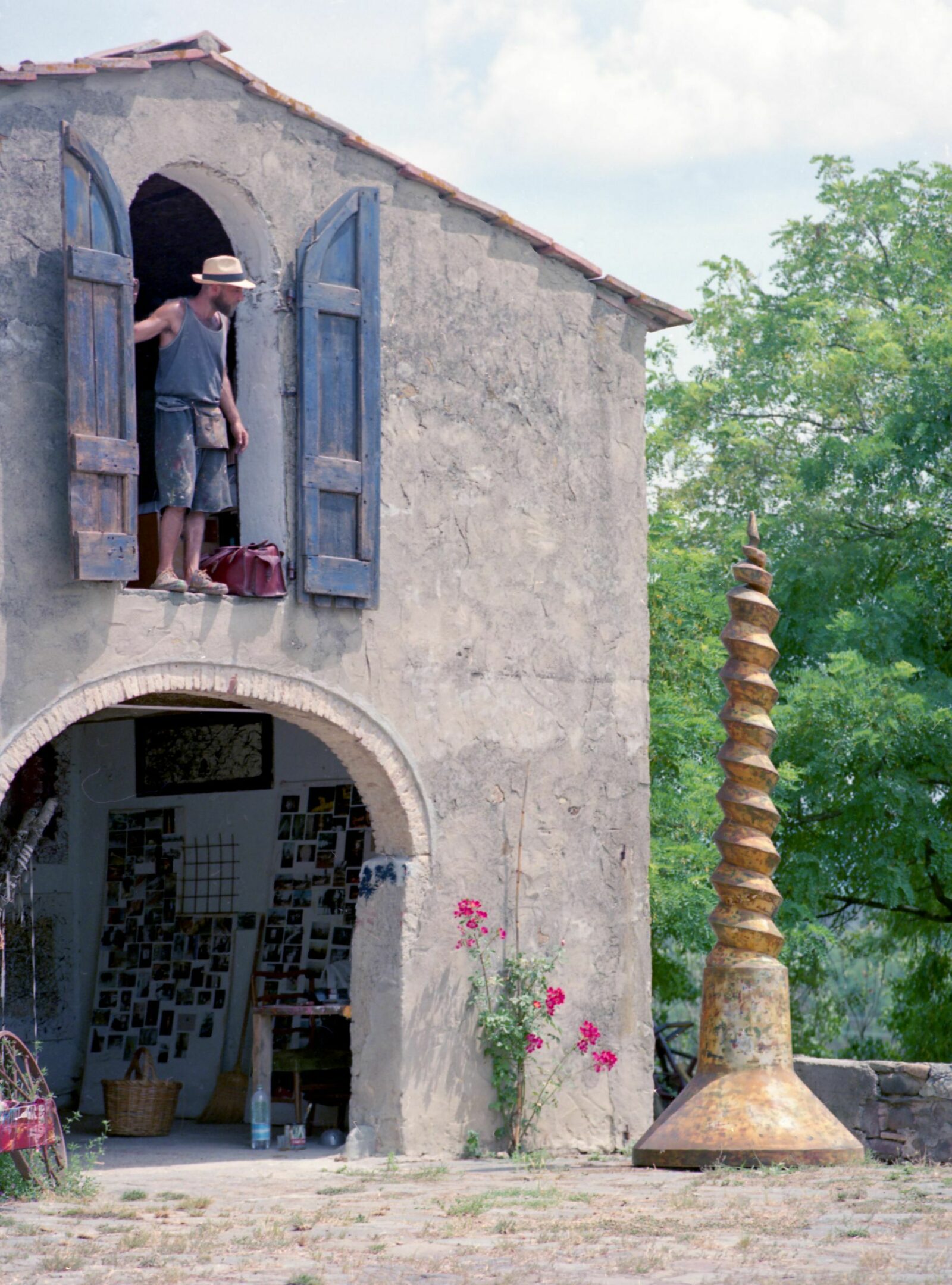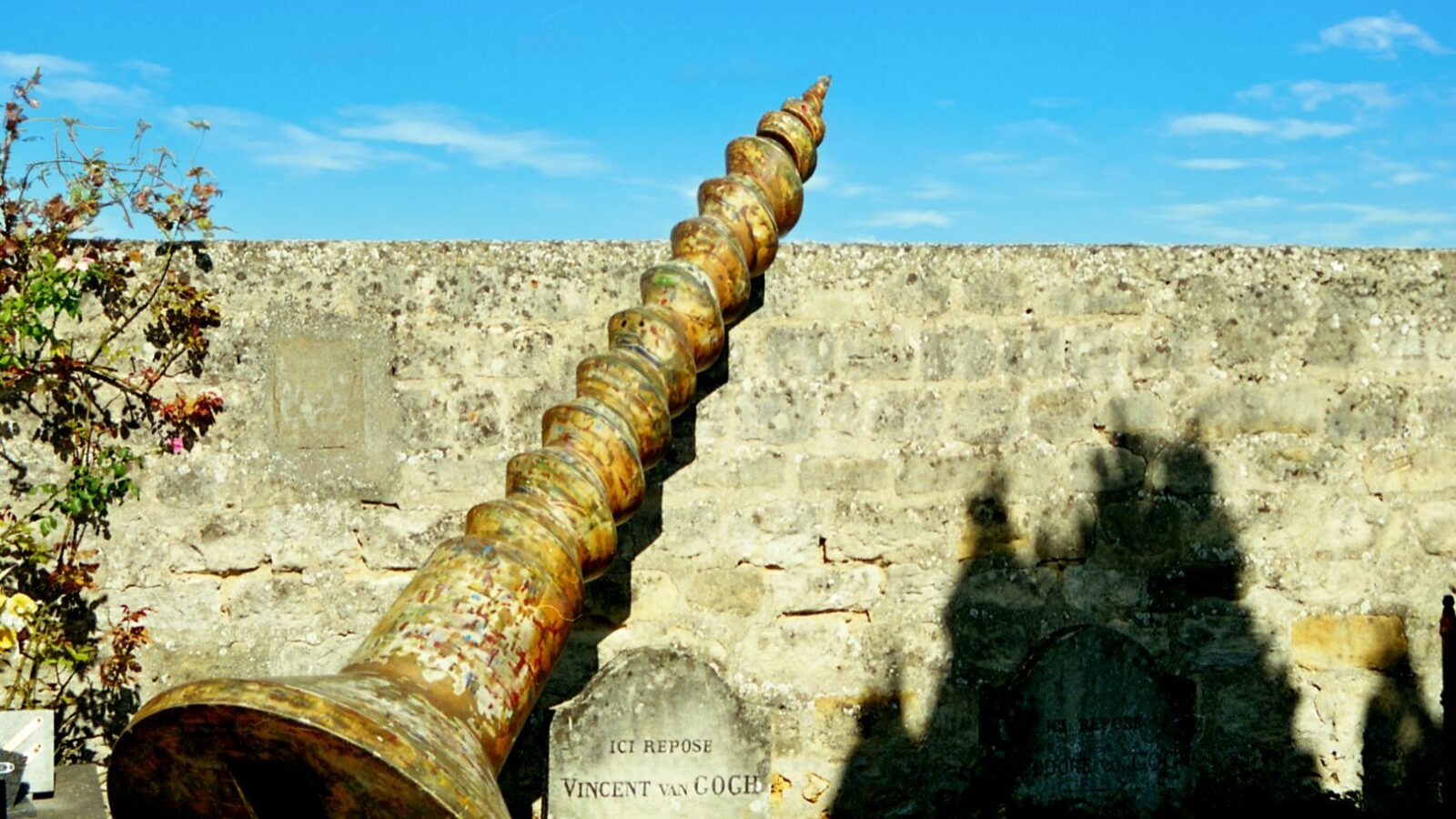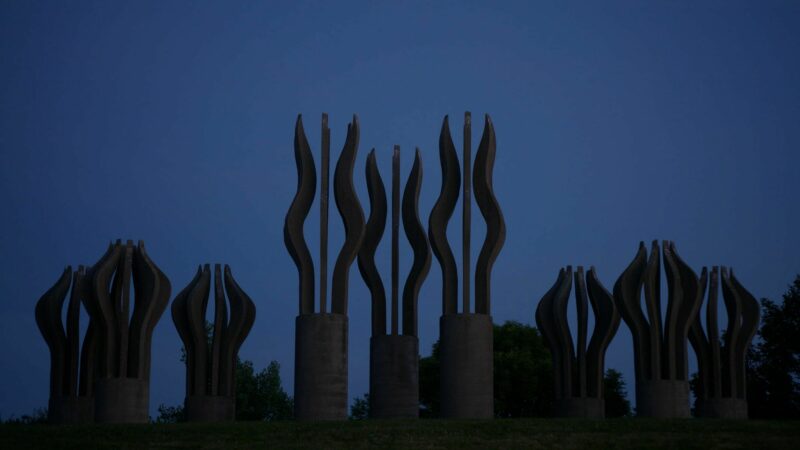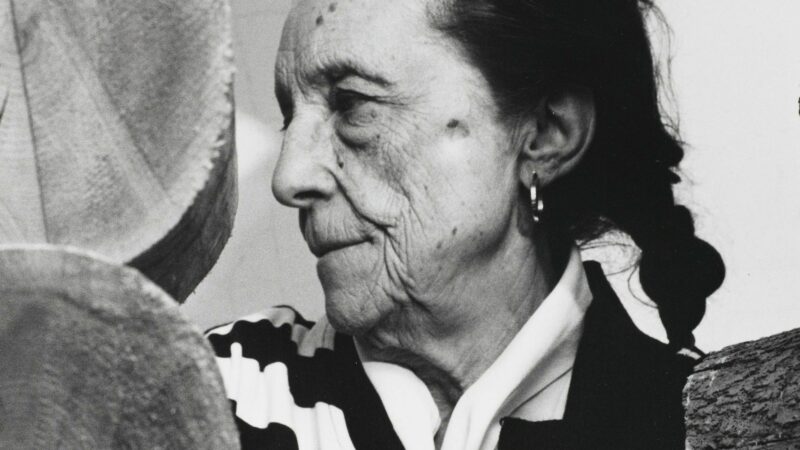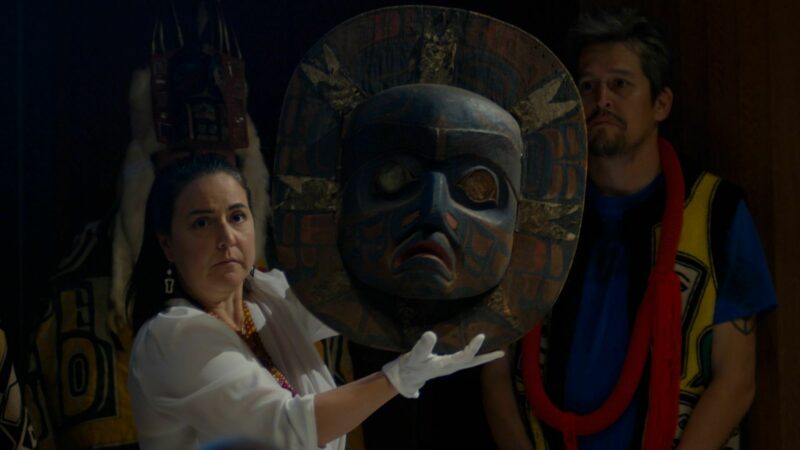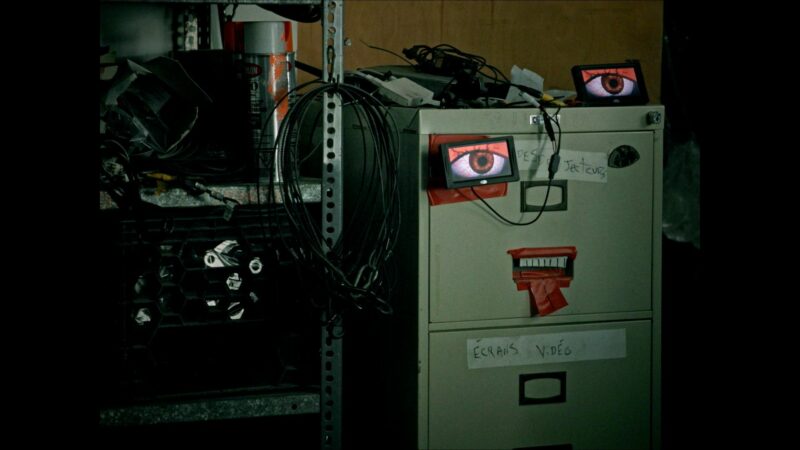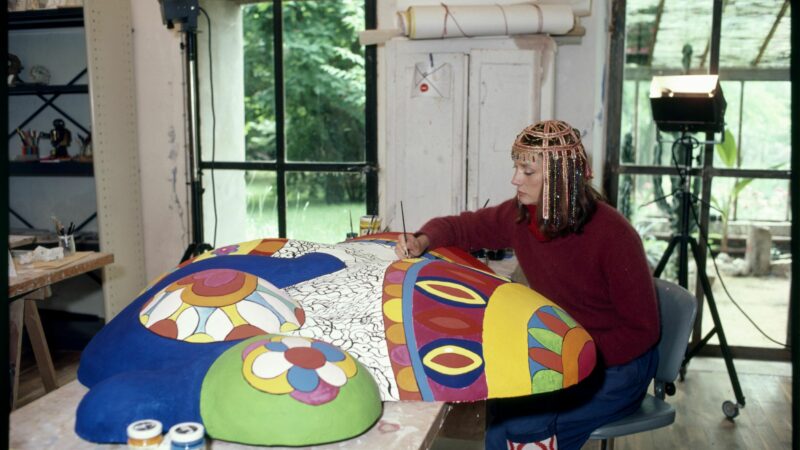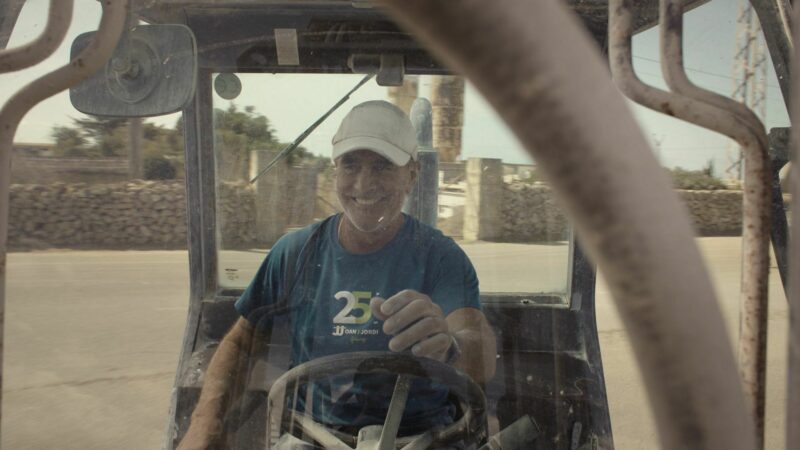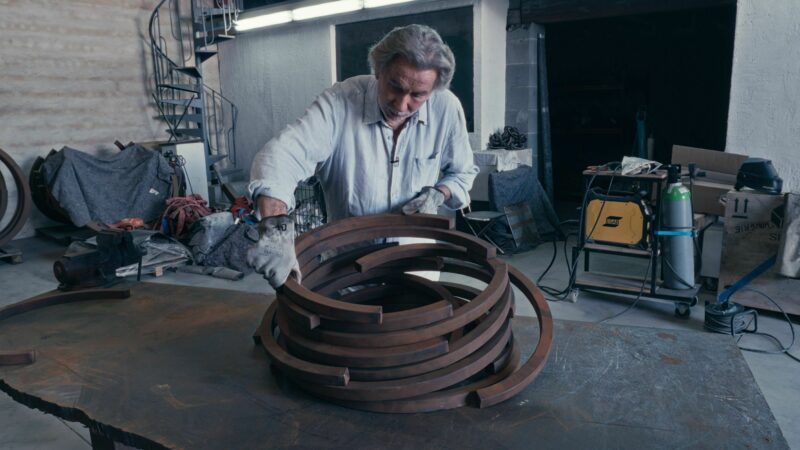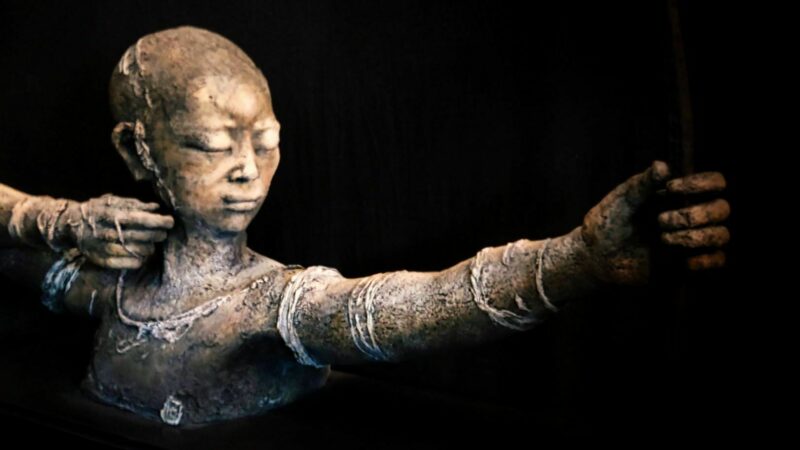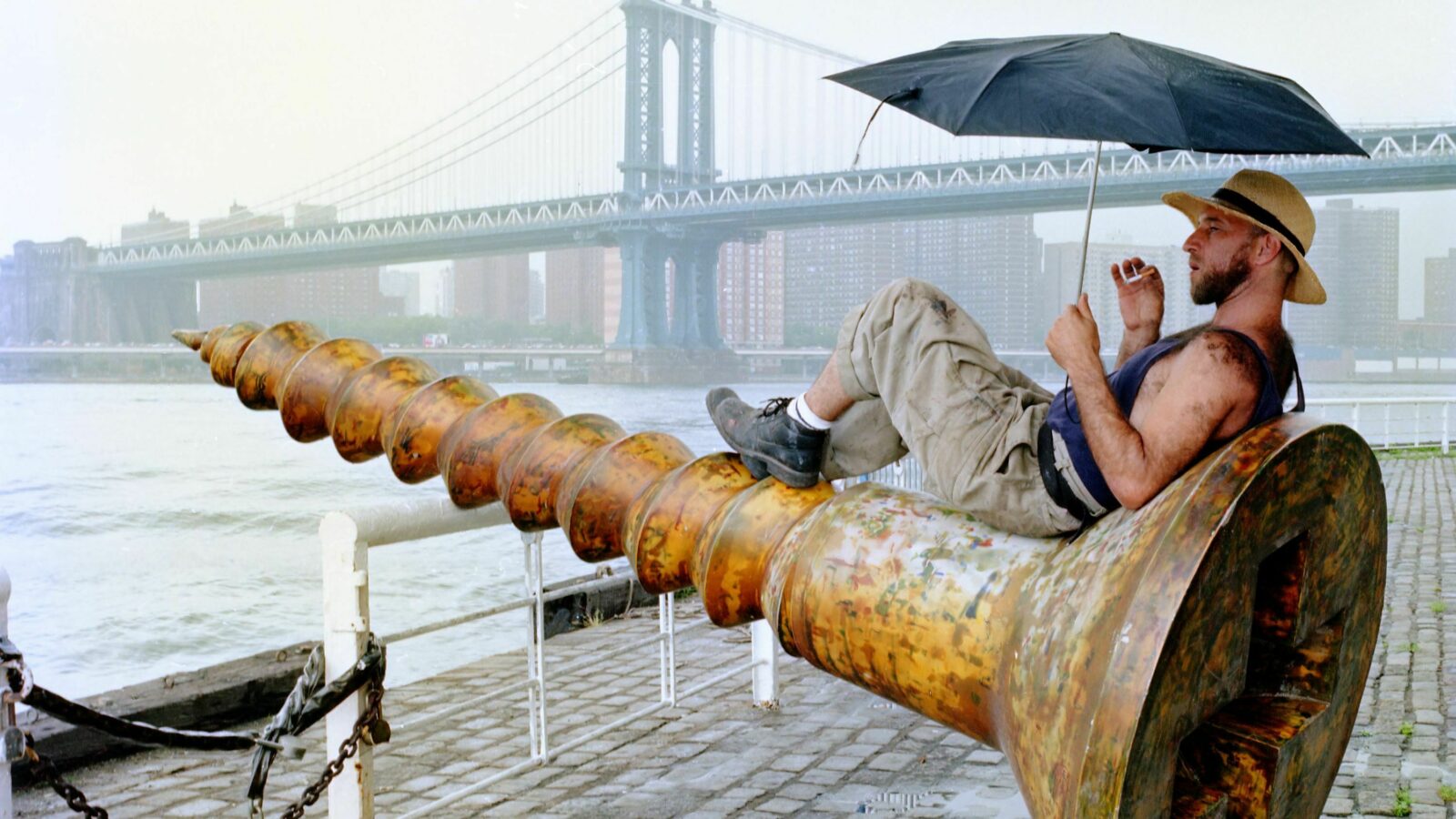
 Trailer
Trailer
Available online from March 21-30, 2025 on ARTS.FILM
My Missing Screw follows artist Raffael Lomas, whose life intertwines art and mental health. After a failed suicide attempt and a stay in a psychiatric hospital, Raffael embarks on a unique journey to create a monumental screw sculpture. With the help of a sculptor friend, he documents the process on a found video camera. Upon leaving the hospital, Raffael travels across Europe, with the screw in tow, to raise awareness and fund his project.
The film blends archival footage and interviews, exploring the connection between madness and creativity. It also examines Raffael’s strained relationship with his son and his pursuit of artistic redemption. My Missing Screw offers a look at the intersection of art, personal struggle, and the search for meaning. Can Raffael reinvent himself, his art, and his family?
Director’s statement:
In 2015, a friend introduced me to Raffael, an artist looking to document an artistic project with refugee children in Uganda. By the end of our first phone conversation, I was curious about the project but also a bit uneasy. In his enthusiasm, Raffael reminded me of my father, who suffered from bipolar disorder, when he was in a manic phase. I called the friend who had introduced us and shared my concerns. He told me that Raffael did have a history of mood disorders but assured me that I shouldn’t worry — he always carried out his grand ideas.
The project in Uganda became my first feature-length documentary, 8000 Paperclips. While working on it, I discovered Raffael’s unusual journey with la grande vis. At first, I was interested in the story simply because it was unique. Then, little by little, as I spoke with Raffael’s family, I uncovered the story of a child and his parents facing a heartbreaking situation. For me, it was deeply moving. Though my parents are no longer together, in part because of my father’s illness, my mother did everything she could to keep me connected with him and to allow him to be a parent. It was only as an adult that I realized how rare that is. Often, parents living with mental illness are rejected by their families and kept away from their children, leaving both the child and the parent in mourning.
What started as a story about a strange artistic project became a story about fatherhood, family, and intergenerational trauma.
While working on this film, I came to understand more about what my father went through. In our conversations, Raffael helped me imagine what my father had experienced and what could have been possible for him. Unfortunately, my father never found a way to live well with his mood disorder.
What impressed me most about Raffael’s journey was the way he managed his condition. Rather than fighting against it, he turned it into a source of creativity. With this film, I want to make a plea to families and society in general: do not be afraid of people living with mental illness. Do not force them into molds that do not fit them, do not confine them, and do not overmedicate them unless it is truly for their well-being. Let them express themselves, love them as they are, and we will all benefit from it.
- Nitsan Tal
In the presence of director Nitsan Tal on March 22nd in Montreal.
The film blends archival footage and interviews, exploring the connection between madness and creativity. It also examines Raffael’s strained relationship with his son and his pursuit of artistic redemption. My Missing Screw offers a look at the intersection of art, personal struggle, and the search for meaning. Can Raffael reinvent himself, his art, and his family?
Director’s statement:
In 2015, a friend introduced me to Raffael, an artist looking to document an artistic project with refugee children in Uganda. By the end of our first phone conversation, I was curious about the project but also a bit uneasy. In his enthusiasm, Raffael reminded me of my father, who suffered from bipolar disorder, when he was in a manic phase. I called the friend who had introduced us and shared my concerns. He told me that Raffael did have a history of mood disorders but assured me that I shouldn’t worry — he always carried out his grand ideas.
The project in Uganda became my first feature-length documentary, 8000 Paperclips. While working on it, I discovered Raffael’s unusual journey with la grande vis. At first, I was interested in the story simply because it was unique. Then, little by little, as I spoke with Raffael’s family, I uncovered the story of a child and his parents facing a heartbreaking situation. For me, it was deeply moving. Though my parents are no longer together, in part because of my father’s illness, my mother did everything she could to keep me connected with him and to allow him to be a parent. It was only as an adult that I realized how rare that is. Often, parents living with mental illness are rejected by their families and kept away from their children, leaving both the child and the parent in mourning.
What started as a story about a strange artistic project became a story about fatherhood, family, and intergenerational trauma.
While working on this film, I came to understand more about what my father went through. In our conversations, Raffael helped me imagine what my father had experienced and what could have been possible for him. Unfortunately, my father never found a way to live well with his mood disorder.
What impressed me most about Raffael’s journey was the way he managed his condition. Rather than fighting against it, he turned it into a source of creativity. With this film, I want to make a plea to families and society in general: do not be afraid of people living with mental illness. Do not force them into molds that do not fit them, do not confine them, and do not overmedicate them unless it is truly for their well-being. Let them express themselves, love them as they are, and we will all benefit from it.
- Nitsan Tal
In the presence of director Nitsan Tal on March 22nd in Montreal.
Other festivals:
Miami Jewish FF, USA (2025)
Haifa International Film Festival, Israel (2024)
St. Louis IFF, USA (2024)
Miami Jewish FF, USA (2025)
Haifa International Film Festival, Israel (2024)
St. Louis IFF, USA (2024)
| Director of Photography | Dan Tapuach, Shahin Dejbakhsh, Federica Nánfeng |
| Editing | Liki Tapuach |
| Director | Nitsan Tal |
| Music | Zed Kelley, Joel Kipnis |
| Animation | Tenzin Yougyal, Tenzin Sopa |
In Partnership with
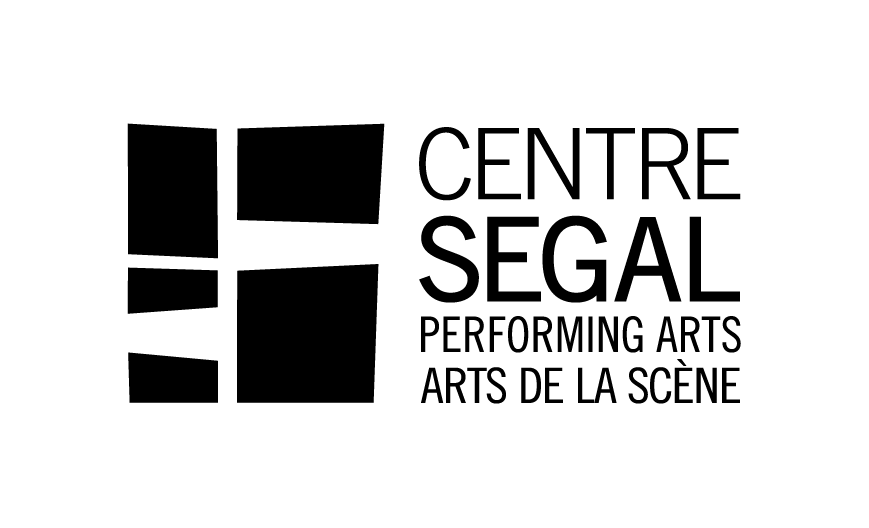
Session
• Université Concordia - J.A. de Sève, LB-125, Pavillon J. W. McConnell
Saturday, march 22, 2025, 08:00 p.m. — 09:33 p.m.


Production
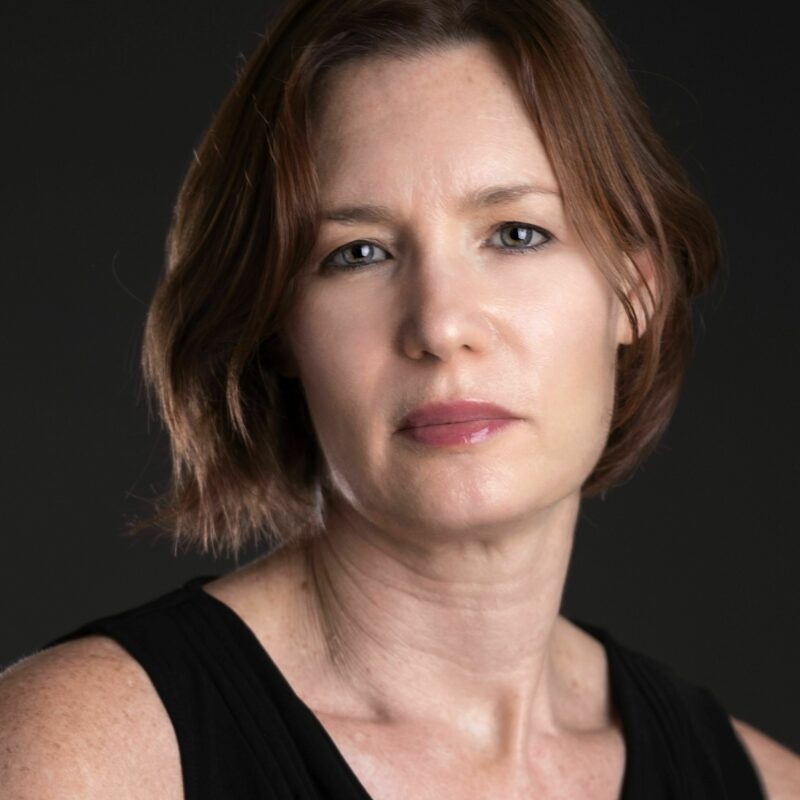
Nitsan Tal
Nitsan Tal was born and raised in Israel, in a Kibbutz. Her grandfather, an avid amateur photographer, gave her her first SLR camera together with dark-room equipment, and sparked her first interest in photography. Nitsan studied veterinary medicine in Israel and moved to the U.S. in 1998. The proximity to New York City allowed her to take classes in photography while practicing as a veterinarian. She studied photography at the New York Institute of Photography and the International Center of Photography. Her photographs were exhibited at the 25 CPW Gallery in NYC, the Next Gallery and the World Affairs Council Global Visions exhibition in San Francisco among others.
She later studied filmmaking at the School of Visual Arts and New York University. In 2013 Nitsan directed her first documentary film “It Takes Balls”, the story of an actor who likes to portray women. She since completed three more documentary films: “Writers Matter” (2015) about a non profit organization working with inner-city school children in Philadelphia, the award winning film “8000 Paperclips” (2020) about an artist working with refugee children in Uganda, and “My Missing Screw” (2024) about a man who travels the world with a giant screw.
Biographical notes provided by the film production team and edited by Le FIFA’s team
She later studied filmmaking at the School of Visual Arts and New York University. In 2013 Nitsan directed her first documentary film “It Takes Balls”, the story of an actor who likes to portray women. She since completed three more documentary films: “Writers Matter” (2015) about a non profit organization working with inner-city school children in Philadelphia, the award winning film “8000 Paperclips” (2020) about an artist working with refugee children in Uganda, and “My Missing Screw” (2024) about a man who travels the world with a giant screw.
Biographical notes provided by the film production team and edited by Le FIFA’s team
8000 Paperclips (2020)
Writers Matter (2015)
It Takes Balls (2013)
Writers Matter (2015)
It Takes Balls (2013)
You would like




